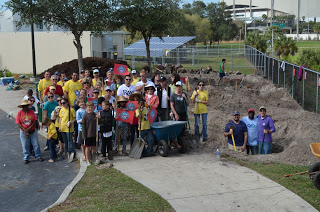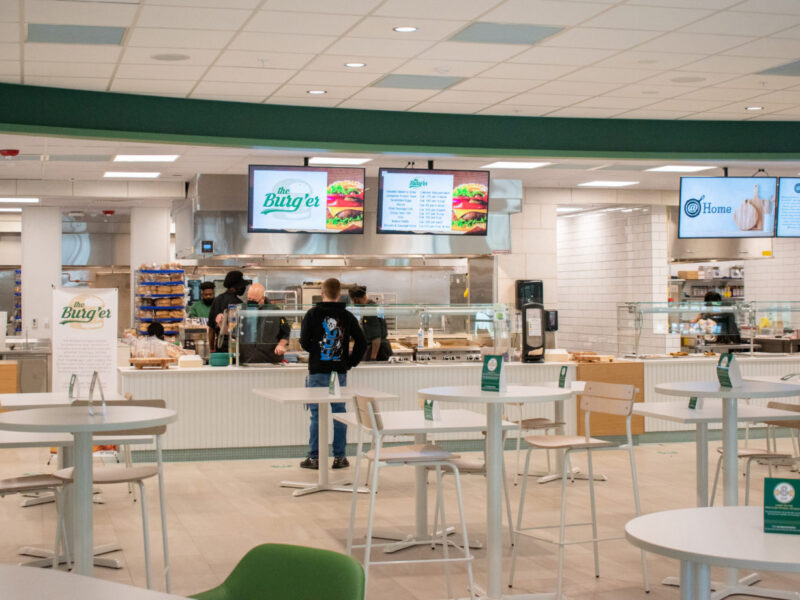 The outdoor classrooms of schools in Midtown make up three quarters of an acre of farmland.
The outdoor classrooms of schools in Midtown make up three quarters of an acre of farmland.
The Edible Peace Patch Project’s Schoolyard Program, consisting of four gardens, has brought urban agriculture to local elementary, middle and high schools since 2009.
Led by founder Kip Curtis, the Edible Peace Patch Project started as a three-week event at Lakewood Elementary with Eckerd College students. After having success with children with disabilities, some Eckerd students continued to participate and members of USFSP’s gardening club joined in. The project has now evolved into a 12-week program serving academically disadvantaged schools.
Among the first volunteers for the Peace Patch were USFSP Gardening Club leaders, Abbey Wakely and Brandi Murphy. The pair has rallied members of the club to participate in urban farm days and plans to help in farm fundraising events.
“It’s an eye-opening opportunity,” Wakely, the garden club’s president, said. “Children have a story and you get to know them know them all. You’re one with the land, one with the children, and one with the future, because you’re working toward greater improvement.”
Teachers arrange lessons in the garden weekly, monthly or each season. For up to 20 minutes per lesson, the ears of elementary students are filled with information on pollinator and predator bugs. Hands-on lessons incorporate subjects like engineering, technology and math with gardening. Following the lesson, the students record thoughts in their science journals.
USFSP students can get academic credit hours for volunteering at the Peace Patch. The Bishop Center on campus allows community partners and faculty to connect with each other to allow service work to count for academic credit. Students can to search the course catalog provided by the Bishop Center to see which courses accept volunteer hours at the Peace Patch.
“It’s really amazing because we can get our students involved and get the students at schools involved so they can learn about science [and] gardening, and they get to eat the food that they grow in the garden that they were actually a part of farming,” said Judithanne McLauchlan, associate director for the Bishop Center.
Curtis made it a foremost goal for the program to be academic, addressing the humanities, sciences and sustainability.
“We are seeing, statistically, science scores and math scores increase. At Sanderlin, saw an improvement in middle school, which the garden made a difference [in],” Curtis said. “We get the kids interested in learning.”
Students and volunteers celebrate with a Harvest Fest once the 12 weeks is up. Flyers are sent home with students to over 250 families. The food grown goes towards providing local school cafeterias. Students in the participating school cafeterias requested vegetables like broccoli, carrots and kale.
“The kids just love it. If I go to a garden to work on the weekend, nine times out of 10, one of those kids that goes to that school that live in the neighborhood will go up to the fence and challenge me and ask me what I’m doing in their garden,” Curtis said. “There’s a real ownership that comes over that’s really very nice to see.”
For more information about the Edible Peace Patch Project, contact garden manager Robin Gibson at robinlgibson@gmail.com. The next Saturday Work Day is from 8 a.m. to noon, Sept. 21, at the Campbell Park Elementary garden.



